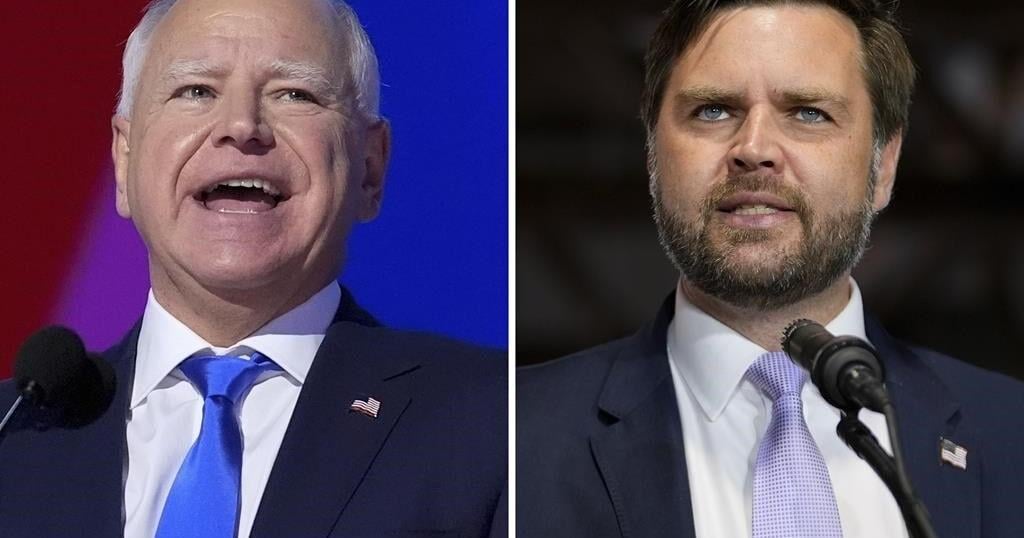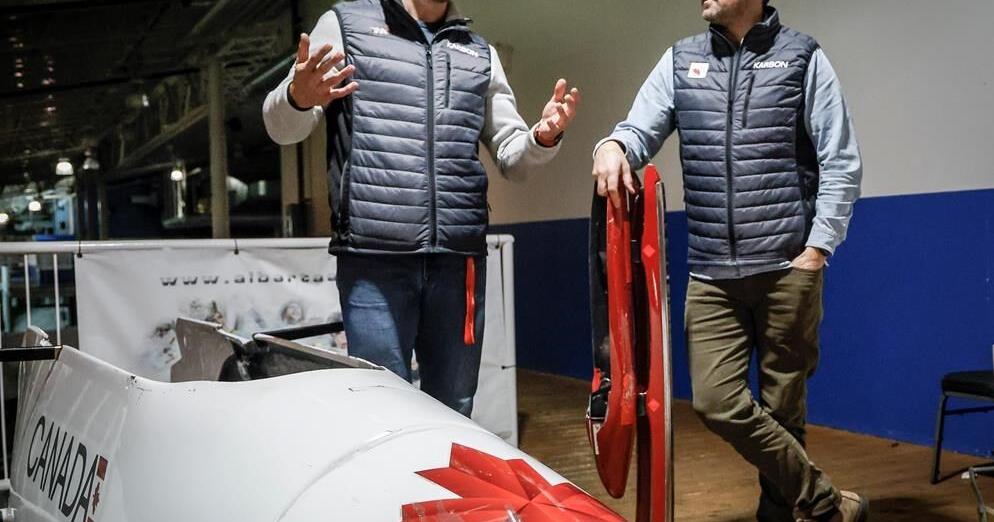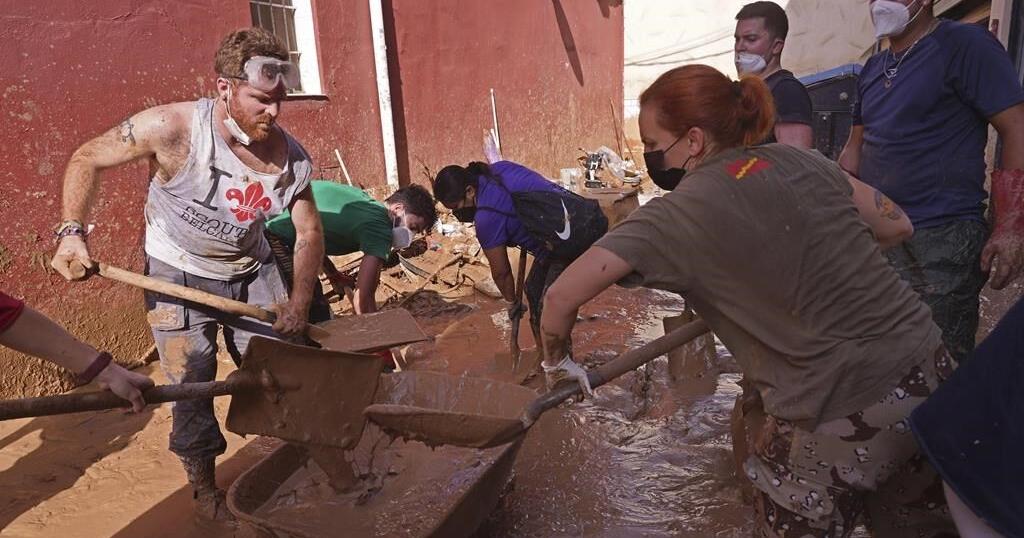WASHINGTON – Tim Walz and JD Vance are set to face off Tuesday in the only debate for the vice-presidential hopefuls during the razor-thin race to November’s election.
Walz, the Democratic governor of Minnesota, and Vance, the Republican senator from Ohio, are expected to play the political attack dog.
Todd Graham, a professor of debate at Southern Illinois University, said Walz has one main job: to keep saying Vance is too weird for the White House.
“Vance is going to say, basically show, ‘I’m not weird and I can be trusted to be president,'” he said.
That may seem like a strange prediction for the focus of a vice-presidential debate, but Walz made it to national prominence by labelling rival Republicans as “weird.”
That has become the most successful attack for Democrats after a tumultuous summer that began with a disastrous debate between Donald Trump and Joe Biden and the president taking himself out of the race.
It was also a contributing factor for Vice-President Kamala Harris to bring Walz onto the reinvigorated Democratic ticket in August.
The attack has particularly focused on Vance for his comments on abortion, on “childless cat ladies” and his previous suggestions that political leaders who didn’t have biological children “don’t really have a direct stake” in the country.
Online memes and videos have targeted those remarks, as well as Vance’s interactions with voters, including a viral encounter at a doughnut shop.
But he has also shown he can circumvent criticism and has doubled down on controversial comments.
He stood by a false claim that Haitian immigrants in Ohio were eating pets, something that Trump repeated during the presidential debate earlier this month.
Officials in Springfield said there was no evidence that was true, but Vance told CNN on Sept. 15 he heard firsthand accounts from constituents and blamed the news media for ignoring issues around immigration.
“If I have to create stories so that the American media actually pays attention to the suffering of the American people, then that’s what I’m going to do,” Vance said.
He could prove to be a fierce opponent for Walz, said Aaron Kall, the director of debate for the University of Michigan.
“They can both deliver sharp barbs and give exchanges, but they can do it with a smile,” Kall said.
The 40-year-old Vance rose to fame with the 2016 publication of his memoir, “Hillbilly Elegy.” Formerly a Trump critic, he was elected to the U.S. Senate in 2022 after becoming one of the former president’s loudest supporters.
He was chosen to connect to white working-class voters who are important for Trump’s chances in Wisconsin, Pennsylvania and Michigan.
Those states swung Republican when Trump won in 2016, and in 2020 they helped put Biden in the White House.
Democrats are hoping that 60-year-old Walz’s “Minnesota nice” demeanour, his history as a football coach and plain-spoken delivery will connect with those same crucial voters.
Graham said both will have three tasks in the debate: defend the top of their ticket, attack the top of the other ticket and prove they are capable of being the president if they had to step in.
While Trump was victorious in June’s debate against Biden, political experts have said Harris dominated when the two squared off.
She prodded Trump over the crowd sizes at his rallies and the 2020 loss, baiting him into tirades far from his intended goals of focusing on immigration and the economy.
It’s unlikely Vance will fall for the same strategy.
“No matter what Walz will try to say, he’s not going to fall for that bait. He’s going to stick to the issues,” Kall said.
Both vice-presidential picks have a Canadian connection. Walz’s state shares an 885-kilometre border with Ontario and Manitoba. Not too long ago he tossed around a football with Ontario Premier Doug Ford.
Meanwhile, Vance went to university with Jamil Jivani, the Conservative MP for Durham. Jivani has called Vance his best friend from Yale and performed a Bible reading at the American politician’s wedding.
But both parties have pitched policies experts have called protectionist. Trump has repeated plans for a 10 per cent tariff on imports and Vance is a vocal opponent of U.S. military aid to Ukraine to fend off Russia’s invasion.
Last week, Harris highlighted that she was one of 10 U.S. senators to vote against the Canada-United States-Mexico agreement under Trump, saying it wasn’t sufficient to protect American workers. If she becomes president, Harris said, she will push the trade pact’s review in 2026.
Matthew Lebo, a specialist in U.S. politics at Western University in London, Ont., said Canadians watching Tuesday’s debate are unlikely to glean much detail about those trade policies. Walz and Vance will talk about personal economic issues and inflation to connect with American voters.
“In an election that is so close, the VP can reflect on the judgment of the presidential pick,” Lebo said.
This report by The Canadian Press was first published Sept. 30, 2024.
— With files from The Associated Press

























